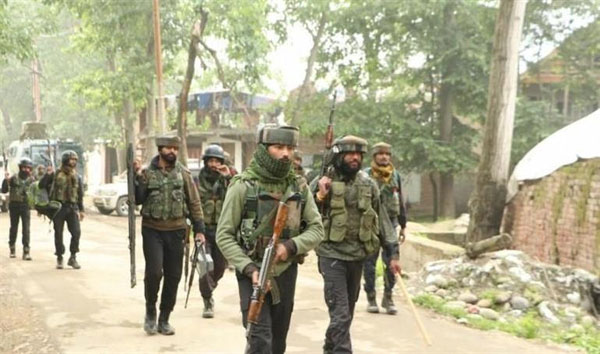Daijiworld Media Network - New Delhi
New Delhi, Sept 15: Union Home Minister Amit Shah on Monday congratulated security forces for a decisive breakthrough in Jharkhand’s anti-Naxal operations, following the killing of three high-ranking Maoists, including Sahdev Soren alias Parvesh, a Central Committee Member of CPI (Maoist) with a Rs 1 crore bounty.
In a post on X, Shah praised the joint efforts of the CoBRA battalion and state police, calling the operation a "major success" in the government’s campaign to eliminate Left Wing Extremism (LWE) across India. He said, “In this operation, the notorious Naxal commander with a Rs 1 crore bounty, CCM Sahdev Soren alias Parvesh, has been eliminated. Two other bounty Naxals — Raghunath Hembram alias Chanchal and Birsen Ganjhu alias Ramkhelawan — have also been gunned down by the security forces.”

The operation, which began early Monday morning in the Panitiri jungle near the Bokaro-Giridih border under Girhor police station limits in Hazaribagh district, involved a joint team of CRPF’s 209 CoBRA unit and police from Giridih and Hazaribagh.
According to CRPF officials, the encounter started around 6 a.m. when the team came under fire from Maoist operatives. The exchange resulted in the deaths of three top leaders, and security forces recovered three AK-47 rifles from the site.
Soren, considered one of the most wanted Maoist leaders in eastern India, was a senior strategist within the Maoist ranks. Raghunath Hembram, a Special Area Committee Member, carried a Rs 25 lakh bounty, while Birsen Ganjhu, a Zonal Committee Member, had a bounty of Rs 10 lakh.
No casualties were reported among security personnel, marking a significant tactical win for the forces.
Following the operation, Shah stated that Maoism has now been “completely eradicated” from the Bokaro region and reaffirmed the government’s commitment to freeing the entire country from the shadow of left-wing extremism.
The latest offensive highlights a shift in the balance against Maoist insurgents, particularly in the "Red Corridor" states, where sustained counterinsurgency efforts have increasingly disrupted their networks.